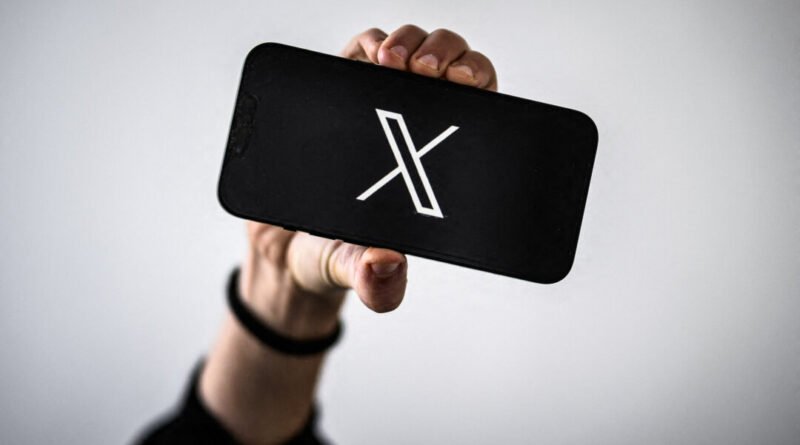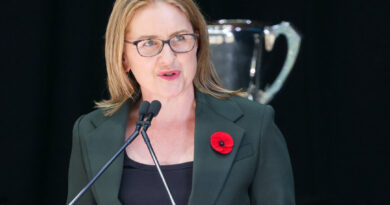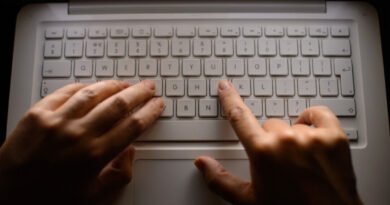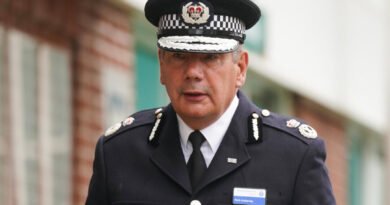Elon Musk Accuses Australia of ‘Suppressing Rights’ During Social Media Investigation
‘I doubt that the people of Australia agree with suppressing their rights,’ says Musk.
X Corporation owner Elon Musk has taken aim at Australian Prime Minister Anthony Albanese amid a parliamentary probe into social media harm.
In response to news that the Australian government is planning to investigate social media companies, Mr. Musk said “I doubt that the people of Australia agree with suppressing their rights.”
The tech billionaire is currently in a legal battle with the Australian government over a request to remove footage of a stabbing attack on a Christian bishop globally.
On May 13, the Federal Court ruled it would not extend a temporary order for X to hide videos of the Sydney stabbing terrorist attack around the world.
What is the Australian Government Probing?
On May 10, the Albanese government advised it would set up a Joint Parliamentary Select Committee to look into social media.
In making the announcement, the government did not target X specifically, but did mention that Meta has recently withdrawn from paying news in Australia.
The government said social media has a civic responsibility to Australian users and society overall.
“Their decisions in recent months—particularly Meta’s decision to withdraw from paying for news in Australia—demonstrates the negative impacts these companies can have on our society.”
The committee is going to look at a range of issues, including “harmful or illegal content” relayed on social media.
This can include scams, age-restricted content, child sexual abuse, and violent extremist material.
The government said it would consult across Parliament on the final terms of reference ahead of a parliamentary referral.
Communications Minister Michelle Rowland said social media companies have enormous reach and control over what Australians see with little to no scrutiny.
“In our democracy, it is imperative that Australians have access to quality public interest journalism, including on social media. Unilateral decisions to undermine news hurts us all,” she said.
“Social media companies have social responsibilities. They need to be more accountable and transparent.”
Ms. Rowland claimed parliament needs to understand how social media companies dial up and down content that supports “healthy democracies,” along with the “anti-social content” that undermines public safety.
What About the Battle Between X and Government?
In April, X received a global takedown order from Australia’s eSafety commissioner Julie Inman Grant to remove posts following the knife attack on a Christian bishop during a livestream service.
However, a Federal Court decided not to extend a temporary order for X to hide videos of a Sydney terrorist stabbing globally on May 13, in a win for Mr. Musk.
X Corporation had communicated it complied with the notice and Australian law by restricting the posts within Australia.
However, X opposed the demand to globally remove content from X because it believes “no government should possess such authority.”
Opposition leader Peter Dutton also expressed support for Mr. Musk’s position that Australia cannot censor the entire world. However, he does back the eSafety Commissioner restricting the content within Australia.
“We can’t pretend that Australia can dictate to other countries around the world what people see within their countries, as we wouldn’t tolerate that here, that Russia could dictate what content is seen in Australia,” Mr. Dutton said.
In a separate post on May 11, Mr. Musk shared a graphic depicting freedom of speech and control amid the battle with the eSafety Commissioner.
“Only X resisted censoring your voice,” Mr. Musk said.
PM Tight Lipped On Whether Musk Should Face Parliament
In a press conference discussing the inquiry on May 10, Mr. Albanese was tight-lipped when asked if he would like to see Elon Musk face the committee.
“She’s doing a great job in ensuring that one of the things that we have to do is to hold some of these companies to account.”
Mr. Albanese highlighted social media companies have changed the way people live their lives and questioned if big tech companies need a social license.
“But we need to also look at what is the impact of that, what is the social license that’s required?” Mr. Albanese said.
Mr. Albanese said it is not just a matter of what the government wants, it is what Australians want.
He said Australians understand that social media plays and important role in people’s lives, but with social media comes the need for “social license and a social responsibility.”
“Across a range of issues—whether it be the issue of domestic violence, whether it be radicalisation of our young people—across a range of areas, something that keeps popping up over and over again is the role of social media, which can be very positive, but can also have a negative influence,” the prime minister said.
Mr. Albanese said the inquiry will enable the community to engage in debate about the role of social media.
“How do we make sure that social media’s benefits continue whilst the potential for harmful impacts are minimized,” he said.
Meanwhile, the Coalition is calling for online age verification for social media companies and wants to see Instagram and TikTok involved.





